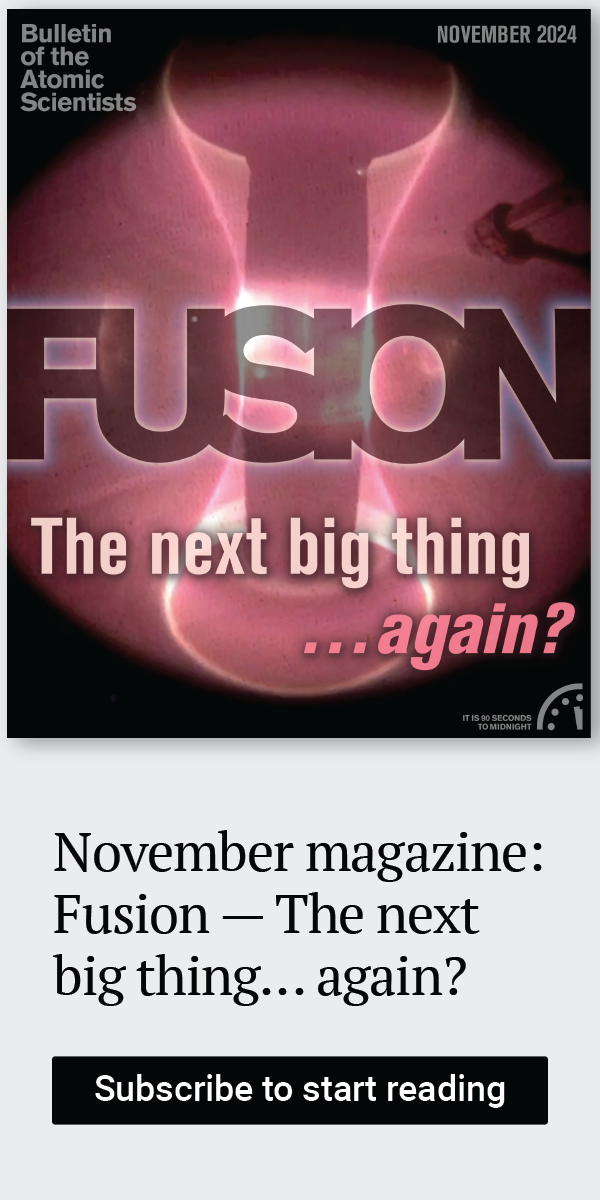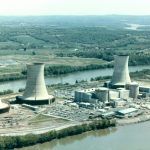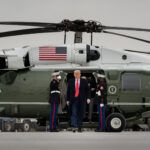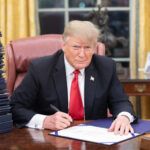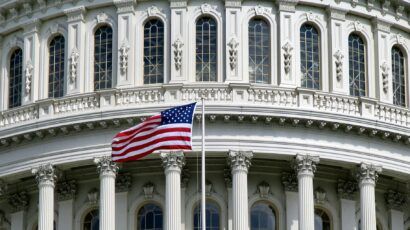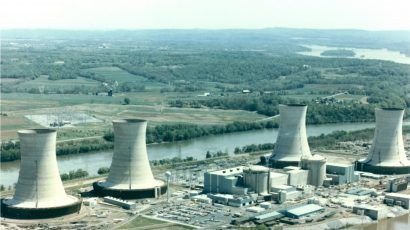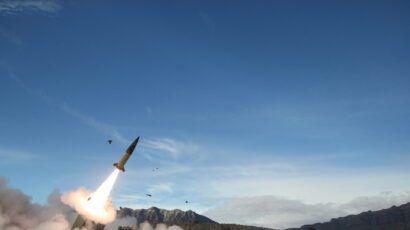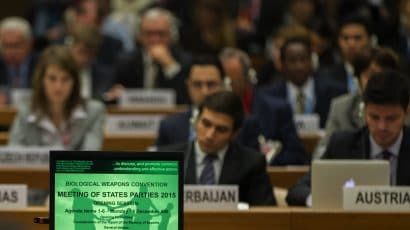Japan’s dilemma: Nuclear trade vs nuclear disarmament advocacy
By Masako Toki | November 3, 2010
In October, when Japanese Prime Minister Naoto Kan and Indian Prime Minister Manmohan Singh met in Japan to announce the conclusion of the Comprehensive Economic Partnership Agreement, there were mixed reviews in Japan. Once signed, this agreement — which opens free trade and investment between the countries and, within the next decade, will stop tariffs on 94 percent of trade — is expected to increase bilateral trade from the current $13 billion to $20 billion by 2013. Japan, of course, welcomes a more robust economy. What Japan awaits, however, is a discussion and negotiation between the two countries on nuclear energy cooperation. But this most contentious endeavor, which was launched in June between the two prime ministers, was practically overlooked in their October meeting. Saying little more, the two leaders agreed to expedite the negotiations surrounding the nuclear deal. This, at least for Japan, will not be so easy.
As a leader of nuclear disarmament and nonproliferation — and the only country that has experienced atomic bomb attacks — Japan is at a crossroads between what is good for the economy and what is good for the national mindset. Japan’s decision to enter into nuclear cooperation talks was a difficult decision — and one that the country’s former Foreign Minister, Katsuya Okada, a well-known nonproliferation and disarmament advocate, defined as the toughest of his career. But Japan’s business community, as well as international corporations, applied force that not only rivaled the national interest but prevailed.
Setting a stage for negotiations. In June, newly elected Prime Minister Kan, known as an outspoken populist to most of Japan, took over the country within days after his predecessor abruptly resigned. With much optimism, Kan announced his plans to “rebuild the country.” His cabinet swiftly approved the New Growth Strategy, which promotes ties with emerging economies in Asia and encourages exporting infrastructure — including nuclear technology — to the region by cooperating with governments and the private sector.
To prepare the country’s industries that would export nuclear power technology and knowledge, the government worked with the private sector to establish a new consortium comprised of 13 entities — including three giant nuclear engineering companies (Toshiba, Hitachi, and Mitsubishi Heavy Industries), nine electric power companies (including Tokyo Electric Power, and Kansai Electric Power), and the Innovation Network Corporation of Japan (a joint venture between the government and 16 private corporations) — to enhance exports of nuclear power plant technology to emerging economies.
Nippon Keidanren, Japan’s business federation and the most influential lobby in the country’s economic policy, was instrumental in not only identifying India as a solid business partner, but starting nuclear cooperation negotiations between the two countries. Once the nuclear pact is signed, it will allow Japan to export its nuclear-related technology and equipment for energy purposes. Japan is not only ready to export its technology to Asia, but to the rest of the world, including the Middle East.
India is planning to construct 20 nuclear power plants by 2020, and New Delhi already signed relevant agreements with several countries including the United States, France, and Canada. For Japan, a country with some of the most advanced nuclear technology in the world, it is natural to be interested in cooperating with India.
Oppositions to the nuclear deal. As an international leader of nuclear disarmament and nonproliferation advocacy, Japan can hardly allow this deal to unfold so easily. To its core, the deal is fundamentally against what has become an essential element of Japan’s national identity — strengthening the nuclear nonproliferation regime. Moreover, people in Hiroshima and Nagasaki have been outraged by Tokyo’s decision to convene the nuclear negotiation with India, a country that is not a party to the Nuclear Non-Proliferation Treaty (NPT) and one that conducted nuclear weapons tests in 1998.
Nagasaki Mayor Tomihisa Taue criticized Tokyo’s decision, saying “… a nation that has suffered atomic bombings itself is now severely weakening the NPT regime, which is beyond intolerable.” In addition, Hiroshima Mayor Tadatoshi Akiba presented a petition — co-signed by Nagasaki Mayor Taue — to former Foreign Minister Okada urging the government to immediately stop the negotiation on a civilian nuclear pact with India.
Driving force to negotiations. Since 2005, when the United States and India first agreed on a nuclear cooperation deal, Japan has been careful not to explicitly criticize or express its support of the deal. Even after the Nuclear Suppliers Group lifted its more than 30-year global embargo on nuclear trade with India, Japan remained silent on the issue. Now, acquiescing to pressure from both the US and France, Tokyo has started negotiations with India, despite the fact that it will only incense and agonize Japan’s population.
It is important to note that some key components for nuclear power plants are only manufactured in Japan and will be sold by both US firms (GE Hitachi Nuclear Energy, which is in the consortium with Tokyo-based Hitachi; Westinghouse Electric, which is a subsidiary of Japan’s Toshiba Corporation) and the French company Areva (a joint venture with Japan’s Mitsubishi Heavy Industries). With this distinct advantage in the industry, Tokyo is an appealing nuclear partner for India.
But there are also geopolitical reasons that pushed Japan to seek a deal with India — competition with South Korea, for starters. Last year, a South Korean consortium won a $20 billion nuclear deal with the United Arab Emirates, beating France and a Japan-US team. The UAE plans to start operating its first nuclear plant in 2017.
Further, its uneasy relationship with China also motivated Japan to establish stronger economic ties with India, the second largest population, and the world’s most populous democracy. Unlike the relationship with China, Japan does not have territorial or historical disputes with India, so a nuclear deal with India makes sense economically, politically, and environmentally. However, from the nonproliferation and disarmament perspectives, this deal is totally irreconcilable with Japan’s policy.
How to reconcile? To mitigate criticism from Japan’s population, former Foreign Minister Okada requested that India, in a formal clause in the agreement, pledge not to conduct nuclear weapons tests. If India were to break this agreement, Okada insisted that Japan could cease its nuclear cooperation. India, of course, did not agree to such a request. Given the economic and political reasons and pressures from both inside and outside Japan, it is almost certain that these two countries will conclude the deal. But this does not mean that Japan must compromise its nonproliferation principle.
Japan seems to have more leverage over India in the nuclear deal. It is true that even if Japan refuses to provide nuclear cooperation, there will be alternative suppliers in the future. But it is also worth noting that, currently, companies in the US and France cannot proceed with their construction of nuclear power plants, given that Japan Steel Works LTD possesses 80 percent of the global market in specialized components that are critical for reactors, including pressure vessels and steam generators.
In order to put more pressure on India, Japan might want to consider working with other countries. Australia, for example, has refused to export uranium to India. Japan and Australia — which recently enhanced its nuclear nonproliferation and disarmament cooperation — should consolidate efforts.
Japan compromised its values when it supported the US-India nuclear deal. If the agreement does not include a stronger nonproliferation and disarmament commitment from India, the long-lasting damage to the nonproliferation regime is detrimental. Japan’s role in nuclear nonproliferation and disarmament should never be underestimated, and its experience — one that is alone in truly understanding the consequences of nuclear weapons — must continue to be unique.
Japan is now oscillating between its nonproliferation principle and the reality to revitalize its economy. Tokyo cannot make further compromises on either issue, and should not choose one at the expense of the other. The only option for Japan is to use this dilemma as an opportunity to contribute to strengthening the nuclear nonproliferation regime by using Japan’s leadership and strength in both nuclear disarmament and nuclear technology. Perhaps Japan is the only country that can play this important role.
In a joint statement issued by the Indian and Japanese prime ministers on October 25, the two leaders expressed their commitment to a nuclear weapons-free world. But both countries need to prove that this is more than just lip service. After all, achieving a world free of nuclear weapons requires painstaking efforts by all nations, both inside and outside the NPT.
Together, we make the world safer.
The Bulletin elevates expert voices above the noise. But as an independent nonprofit organization, our operations depend on the support of readers like you. Help us continue to deliver quality journalism that holds leaders accountable. Your support of our work at any level is important. In return, we promise our coverage will be understandable, influential, vigilant, solution-oriented, and fair-minded. Together we can make a difference.
Topics: Nuclear Energy, Nuclear Weapons, Opinion

